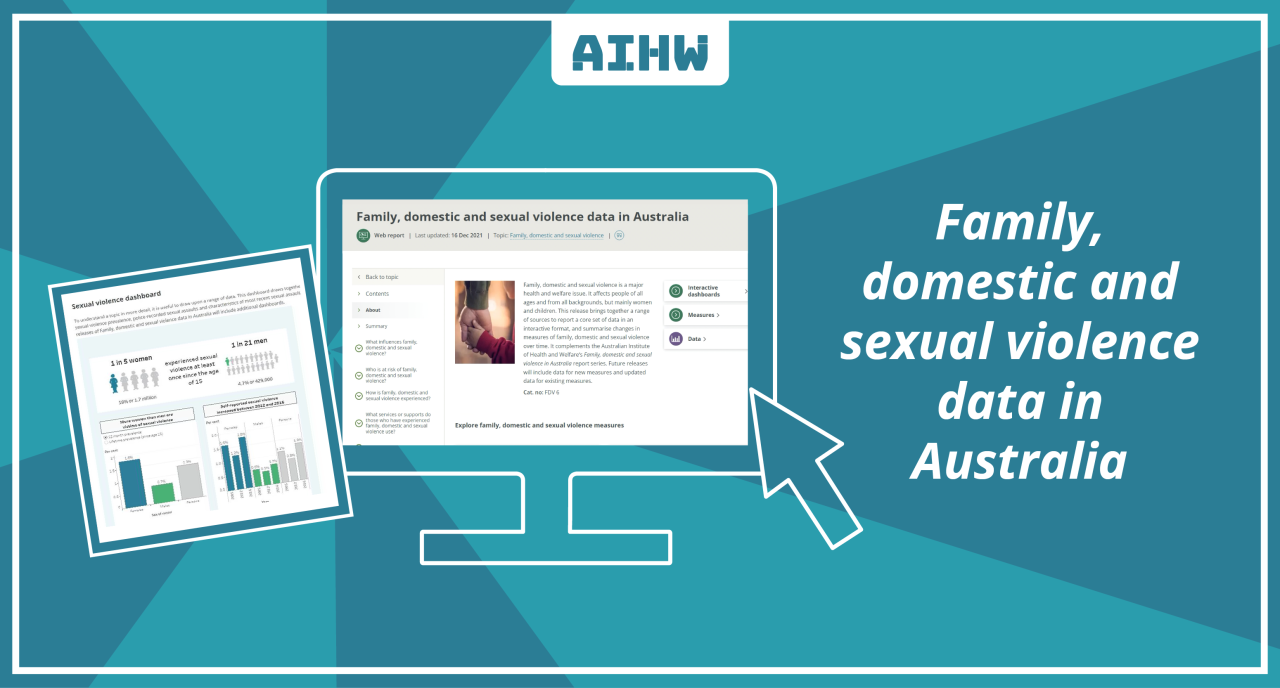The article was originally posted on LinkedIn by Louise York, Head of the Community Services Group
Content warning: This article contains information some readers may find distressing as it refers to data about family, domestic and sexual violence.
Today we have released two important AIHW reports and an interactive data visualisation product on family, domestic and sexual violence.
These releases bring together new analysis and existing information from a range of sources to help us better understand the nature, responses and impact of this major health and welfare issue in Australia, and to highlight national data gaps.
In Australia in 2016, around 1 in 6 women (17%) and 1 in 16 men (6.1%) have experienced physical and/or sexual violence from a current or previous partner since the age of 15.
Today’s product suite includes:
· Examination of hospital stays due to family and domestic violence 2010–11 to 2018–19
This report uses linked hospital and deaths data from the National Integrated Health Services Information Analysis Asset (NIHSI AA), to look at family and domestic violence (FDV) hospital stays between 2010–11 to 2018–19. The NIHSI AA includes all jurisdictions except Western Australia and Northern Territory.
· Family, domestic and sexual violence service responses in the time of COVID-19
Drawing on data from a range of national sources, this short AIHW report shows how service responses to family, domestic and sexual violence changed during the early stages of the COVID-19 pandemic, with a focus on data from January to June 2020.
· Family, domestic and sexual violence data in Australia (interactive data visualisation product)
This new interactive data visualisation product builds on the Family, domestic and sexual violence in Australia report series. Users can explore the latest data on a range of topics including: community attitudes; the nature and prevalence of family, domestic and sexual violence; and service use, such as interactions with hospitals, specialist homelessness services and police. This product will be updated and expanded as new data become available.
Access to comprehensive and up-to-date data is critical to support decision making which can improve the outcomes for people experiencing family, domestic and sexual violence.
If this information raises any issues for you, these services can help:
1800RESPECT (1800 737 732, www.1800respect.org.au)
Lifeline (13 11 14, www.lifeline.org.au)
Kids Helpline (1800 551 800, www.kidshelpline.com.au)
No to Violence (1300 766 491, www.ntv.org.au)



